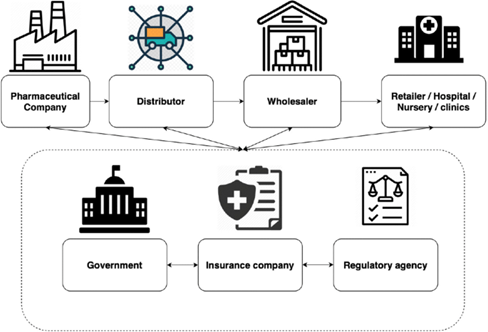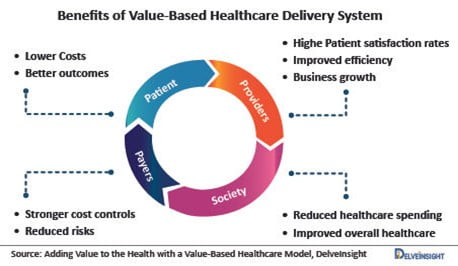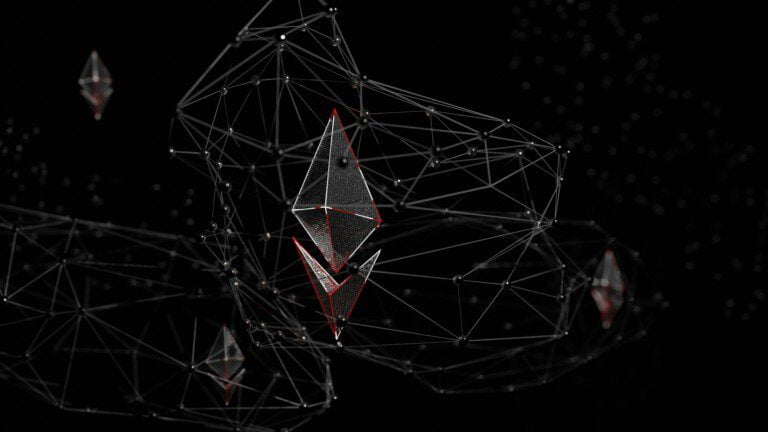Introduction
Blockchain is an advanced technology that has provided multiple solutions along with innovation which has also shown success in the sector of healthcare.
It has used its feature to store and exchange data of a patient from hospitals, laboratories and pharmacies its application will also identify various mistakes that improve/discard the dangerous ones that are present in the field of medicine. This technology is supportive to medical institutions to gain insight and enhance the analysis of medical records.
Overview of Healthcare Data Challenges
Currently, the processing of data is high in demand in the field of medicine. Security as well as privacy plays an important role in the case of healthcare giving some challenges and disputes in real-time situations applications such as :- cloud computing which is used to analyse the data. The effect of larger data is huge as the medical field is known for its diversity and degree of dynamism. The top five challenges of healthcare are:
- Collecting Accurate Data
- Fragmented Patient Care
- Data Privacy and Security
- Data Visualization
- Documents Analysis
By taking care of these challenges, we can overcome them and also provide a better future in terms of healthcare data.

Issues recent electronic health records systems
The technology can be good as well as hazardous in the case of the safety of data which is the real challenge. Electronic health records systems (EHRs) improve the quality of healthcare which is also cost-effective and shows more growth in most of the developing countries.[1] There are some issues in the case of electronic health records systems such as:
- Interoperability
- Medication errors
- Privacy
- Confidentiality
- Data migration
Electronic Health Records allow structured medical data to be shared easily among approved healthcare providers to improve the quality of the healthcare services that are delivered to the patients. Security and privacy are major concerns because it is sensitive information that cannot be disclosed to third parties.
Importance of improved security, privacy and data sharing
Security, privacy and data sharing are essential parts when it comes to data in the field of healthcare. When properly implemented and strong data security strategies will not only protect the information against cybercriminal activity but it will also protect from the threats and human error that will remain among the important causes of data breaches today.
The improvement of security, privacy and data security helps to maintain awareness and balance which will prevent cybercrimes, it protects physical safety and mostly it gives improved strategic alignment, decision-making processes, and data quality.
Potential of blockchain technology
Immutable record-keeping
Immutable record-keeping is a system that makes sure that data cannot be deleted or changed which allows to creation of permanent and transparent records. In terms of blockchain, the immutable ledger is a decentralized and distributed ledger across the network. An immutable record of data is invaluable and this can update the audits, compliance, and legal processes along with the time saving and resources.
Transparency with access controls
Analysis of Blockchain Applications
Blockchain can induce transformation and innovation in current business models and frameworks and the application of this technology is used to manage domain and its processes has attracted different industries. The analysis of blockchain is a method for inspecting, identifying and visually representing the data on a blockchain also it aims to determine more information. Some of the companies that use blockchain analysis are:
- Chainalysis
- Crystal
- Blockchain Analytics
From the perspective of the felid of healthcare, the blockchain can be used for secure patient data management, pharmaceutical supply chain tracking and transparent sharing of medical records. This impact on healthcare will lead to improved efficiency, decreased fraud and enhanced trust among stakeholders.
Secure Medical Records Management
Medical records management is a system that has procedures and protocols that contain patient information about the whole data lifecycle. It includes :-
- Accurately collecting and recording patient health information
- Firmly storing patient data
- Providing structured access to patient records
Some ways can protect the records of medical Management:
- Regularly Perform Risk Assessment
- Encrypt Your Data
- Keep Organized
- Monitor System Access
- Use Two-Factor Authentication
- Perform Updates Periodically
Technology moving faster than ever before to offer convenience and ease, so it is important to check constantly the security measures when it comes to medical records because it’s the personal information of individuals.
Record accuracy with blockchain audit trails
Blockchain audit trails make sure about the accuracy of the records by generating unalterable and transparent audit trails. In the case of healthcare once the information is stored in the blockchain it cannot be changed or deleted without permission from the network.
Blockchain audit trials work in a manner where the data is blocked and access and modification can be done by authorized individuals which helps to ensure the accuracy of records by eliminating centralization risks, reducing errors or frauds and it will also improve the efficiency of the process. There are principles behind using blockchain in audits which is based on a four-layer structure i.e., data acquisition, data transfer, data audit, and data analysis & storage layers but the main purpose is to reduce fraud, material errors, and unauthorized use.
Interoperability across healthcare providers
Drug Supply Chain Traceability
Drug Supply Chain Traceability is a process in which the product acceptability is been identified and transactions are tracked through the supply chain.


Traceability is significant in the medicinal industry because it allows participants to:
- Determine the authenticity of drug products
- Identify and remove illegitimate or expired products from the supply chain
- Accelerate the processing of drug product recalls
Drug track and trace is used to enhance the lives of patients preventing the entry of bogus and substandard drugs into the system. One of the regulations is the GMP Guidelines in the pharma industry which set certain criteria to maintain its compliance with strict local and global regulations using conventional methods that are restrictions of possibility. [1] The traceability system gives a value-add that leads to better working relationships with suppliers and consumers.
Tracking drugs from manufacturer to patient
Tracking drugs from manufacturer to patient is a critical aspect of confirming medication safety and authenticity and this is referred to as pharmaceutical serialization which includes unique identifiers at each packaging of the drugs. It also allows it to be tracked throughout the whole process, right from the manufacturer to the distributor and lastly to the patient.
There are multiple technologies used such as: barcodes, RFID tags and serialization software to track the process and these systems help to find out about the movement of drugs so that we can make sure the patients have received proper and genuine medicine. This process plays an important role in safeguarding the honesty of the pharmaceutical supply chain and also protects public health.
Preventing counterfeits and facilitating recalls
Counterfeit drugs are the major concern in pharma industries which aim toward patient safety and these traditional methods can lead to risks. Hence the new technology comes in i.e., blockchain where there is new hope along with some challenges. To prevent counterfeiting technologies, such as unique serial numbers, barcodes, and RFID tags, can be used to authenticate products at each stage.
Product recall is an effective track and trace system that allows for fast and precise identification of affected batches and this capability will easily remove the harmful drugs. With the help of bar codes or other traceable technologies, the authorities can constantly recall the process and enhance the safety of patients. The prevention of counterfeiting and streamlining the recall process will benefit both the pharmaceutical industry and patient well-being.
Genomic Data Management
Privacy and consent models for genomic data
Privacy and consent are crucial fragments in terms of data which is used while sharing by giving respect to an individual while sharing their information for research purposes. There are some privacy and consent models for genomic data:
- Broad consent: Individuals agree to use the data being used for primary research and general research purposes.
- Controlled access: Genomic data as well as health information are stored in a database that only authorized researchers can access and researchers must apply for access along with an explanation of how they will use the data.
- Open access: A data access policy model for genomic data.
- Registered access: A data access policy model for genomic data.
This framework helps to manage and utilize genomic data which creates a balance for scientific advancement with the protection of individual’s confidentiality rights. Researchers and policymakers need to continue to develop and refine these models to maintain moral standards which will help to build trust within the scientific community as well as in the public.
Advancing genomic research through blockchain
Blockchain technology provides support to genomic research by providing data contributors with full ownership of the data and it can be controlled by the one who can access it. Some points that can help to advance or enhance genomic research through blockchain are:
- Enhanced security and transparency
- Immutable and tamper-proof data storage
- Efficient and decentralized data sharing
- Potential for streamlined consent management
- Improved traceability and audibility
It has more potential to provide immutable and decentralized data which can be a step to enhance the field by sustaining the safety of the sensitive information. Exploration of blockchain in genomic research can further lead to better improvement in the security and management of data.
Impact on Healthcare Delivery
Improved data access and portability for patients
Data portability in healthcare gives access to the providers to check the patient’s information from different sources and also allows them to understand the history of patients. medication and treatments. Some of the major benefits of data access and portability are:
- Decision Making
- Fast and easy to share the details
- Accurate treatment
Improved data access and portability for patients are important to enhance healthcare outcomes and this can lead to a more efficient and effective healthcare system. It will also offer cost savings, patient coordination and safety. This will support medical research and innovation by making huge datasets that will provide more accessibility for analysis.
Increased efficiency and cost savings
Cost saving and efficiency will give the opportunities that are provided by the streamlining and consolidation solutions that release from the workload. The integration of predictive analytics and artificial intelligence can help identify high-risk patients and it will prevent costly complications. In the case of healthcare efficiency, will allow us to do more with fewer resources which means better quality without increasing the cost by the same amount.
This wide adoption of technology has led to constant improvements with innovation which are important to understand the advantages and having a sustainable future in the healthcare system. It will benefit everyone right from hospital owners to patients and it enhances productivity along with profits.
Facilitation of value-based care models
Value-based care is a model for the outcomes of healthcare and how the healthcare providers improve the quality of care which are based on certain measures which are :- hospital readmission, improvement in health-related quality of life and better patient satisfaction. It can be facilitated by:
- Collaborative Teams
- Integrated care
- Network of care
- Value-based care MSOs
By implementation of a value-based condition-specific healthcare delivery model requires a collaboration effort between healthcare providers, patients and other stakeholders. Improving outcomes and reducing costs for specific health conditions will provide this model to improve the overall quality of care while also reducing healthcare spending.


Emerging Trends and Future Outlook
Integration with AI and IoT devices
This integration of IoT and AI allows the analysis of real-time data which is generated by the internet connection device which helps to provide faster response and insights. This combination of AI and IoT is one of the important keys to fast-track the development and services in the digital domain.
AI and IoT technologies are connected systems in which the AI acts as the brain to the IoT’s body where the IoT will collect and transfer the data to different sources to help the learning process where AI can continue its automation and it can be adjustable to new inputs and changes in the environment.
Benefits of integration of IoT and AI:
- Speeding the efficiency of operation
- Advancement of Risk Management
- High Scalability
- Improved Products and Services
The combination of AI and IoT is a work of art that aims towards the smart revolution and causes a fundamental shift that gives the advantage and contributes to cost-effectiveness. AIoT technology has greatly impacted every business in maximizing profit, functioning more efficiently and innovating.
Tokenization of health-related assets
Tokenization of health-related assets is the replacement of patient data such as :- PANs, NPPI and ePHI which have unique values that will help to reduce the breaches. It will also transfer the power to access, create and share personal information from other intermediates. In these, it converts the ownership rights into digital assets and stores them in the blockchain in the case of health care tokenization can be used to manage patient data, pharmaceutical supply or to raise funds.
Benefits of Tokenized assets:
- Open Access
- Chain Transparency
- Permissionless liquidity
It is essential to report these regulatory and security concerns to make sure about the integrity and honesty of tokenized assets and considering these factors the tokenization of healthcare-related assets could provide a more accessible and efficient healthcare ecosystem.
Blockchain standards and regulatory compliance
Regulatory compliance is a procedure of following the laws and regulations that are set by the government and other regulatory bodies in the case of blockchain it refers to following the legal requirements that apply to blockchain networks and transactions. There are four key benefits to establishing blockchain standards and regulatory compliance which are:
- Interoperability – It is a standard protocol that promotes interoperability among different blockchain platforms.
- Data Integrity and Security – To ensure that the healthcare data is stored in the blockchain safely.
- Regulatory Adherence – Healthcare organizations make sure they agree with data protection laws and reduce the risk of legal issues.
- Trust and Transparency – Establishing blockchain standards and regulatory compliance introduces trust in the technology and its applications within the healthcare sector.
The establishment of blockchain standards and regulatory compliance in healthcare will help to promote interoperability and enhance data security and regulatory adherence which will help to build trust and transparency.
Conclusion
The fusion of blockchain technology in healthcare presents a promising future but it also addresses challenges such as data security, privacy and interoperability, blockchain can transform healthcare outcomes. Its capability to improve data access and accuracy also has facilitated value-based care models that indicate a transformative effect. Along with the importance of trends like AI and IoT integration and tokenization of health-related assets which will improve the efficiency and innovation in the healthcare industry. We recommended that healthcare institutions contain the integration of blockchain technology which also gives challenges that are directly linked to data security, privacy, and interoperability. Along with the benefits of AI and IoT integration and tokenization of health-related assets, it would be helpful to spend more time on research and development that will assist in the advancement of technology in healthcare. Another important factor is blockchain standards and regulations that ensure trust, transparency and regulatory adherence as priorities within healthcare.












You must be logged in to post a comment.